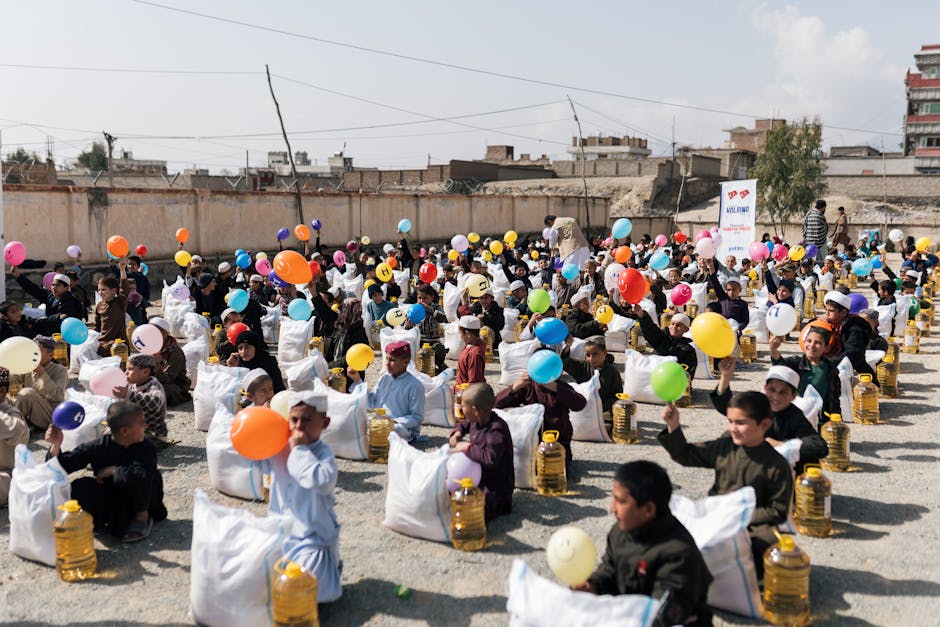Support Groups for Families of Addicts: Understanding, Coping, and Healing
When a loved one is struggling with addiction, the impact ripples out far beyond the individual themselves. Families often bear the heavy burden of witnessing the effects of addiction, experiencing emotional turmoil, and navigating a complex web of challenges. In these trying times, support groups for families of addicts can be a lifeline, providing a safe space for sharing, learning, and healing.
But what exactly are support groups for families of addicts, and how do they work? How can they benefit those affected by a loved one’s addiction, and what resources do they offer? In this comprehensive guide, we will delve into the world of support groups for families of addicts, exploring their importance, effectiveness, and the valuable support they provide.
The Evolution of Support Groups

Support groups for families of addicts have a long history rooted in the recognition of addiction as a family disease. Historically, addiction was often viewed as an individual problem, with little acknowledgement of its impact on family members. However, as research and understanding of addiction have evolved, so too has the recognition of the need to support families affected by addiction.
One of the earliest and most well-known support groups for families of addicts is Al-Anon. Founded in 1951, Al-Anon provides a safe and supportive environment for the families and friends of alcoholics to share their experiences, strength, and hope. Over the years, Al-Anon has grown into a worldwide fellowship, offering meetings both in person and online to support individuals dealing with the effects of a loved one’s addiction.
Other support groups, such as Nar-Anon for families of drug addicts, have also emerged to address the specific challenges faced by families dealing with substance abuse. These groups offer a range of resources, including education, coping strategies, and emotional support, tailored to the unique needs of families impacted by addiction.
The Impact of Addiction on Families

It’s essential to understand the profound impact addiction can have on families. Addiction is often described as a family disease because it affects not only the individual struggling with substance abuse but also their loved ones. Families of addicts may experience a range of emotions, including anger, guilt, shame, and fear.
Communication breakdowns, strained relationships, financial hardships, and emotional trauma are common challenges faced by families dealing with addiction. The instability and unpredictability of addiction can create a chaotic and stressful environment, leaving family members feeling overwhelmed and isolated.
Support groups for families of addicts provide a safe space for individuals to share their experiences and connect with others who understand the challenges they are facing. By offering a supportive community, these groups help reduce feelings of isolation and provide a sense of belonging and understanding.
The Role of Support Groups

Support groups for families of addicts play a crucial role in helping individuals cope with the challenges of addiction and find healing and hope. These groups offer a range of benefits, including:
Emotional Support
One of the primary functions of support groups is to provide emotional support to individuals dealing with the impact of addiction on their families. By sharing their experiences and feelings in a safe and supportive environment, participants can release pent-up emotions, gain perspective, and feel validated in their struggles.
Emotional support is a vital component of the healing process, helping individuals navigate complex emotions and develop healthy coping mechanisms. Support group members often develop close bonds with one another, forming friendships that provide ongoing support and encouragement.
Education and Information
Support groups for families of addicts also serve as valuable sources of education and information. Participants can learn about addiction, recovery, and coping strategies from experienced facilitators, guest speakers, and fellow group members.
Education is empowering, equipping individuals with the knowledge and tools they need to support their loved ones effectively and take care of themselves. By gaining a better understanding of addiction and its impact, family members can make informed decisions and navigate the complexities of their situation more effectively.
Community and Connection
Support groups create a sense of community and connection for individuals affected by addiction. In these groups, participants can share their stories, offer and receive support, and connect with others who are on a similar journey.
Community and connection are essential for healing, as they help combat feelings of isolation and loneliness. By participating in a supportive community, individuals can feel validated, understood, and accepted, fostering a sense of belonging and unity.
Types of Support Groups

Support groups for families of addicts come in various forms, each offering unique benefits and approaches to healing. Some of the most common types of support groups include:
Al-Anon
Al-Anon is a worldwide fellowship that offers support to the families and friends of alcoholics. Al-Anon meetings provide a safe space for individuals to share their experiences, strength, and hope, and learn from one another’s stories. The program is based on the Twelve Steps and Twelve Traditions of Alcoholics Anonymous, adapted to address the specific needs of family members.
Nar-Anon
Nar-Anon is a support group for families and friends of drug addicts, offering a similar format to Al-Anon. Nar-Anon meetings provide a supportive community where individuals can share their struggles, receive guidance, and find healing. The program is based on the Twelve Steps of Nar-Anon, which focus on personal growth, self-awareness, and spiritual principles.
SMART Recovery Family & Friends
SMART Recovery Family & Friends is a science-based program that offers support to individuals affected by addiction. The program focuses on empowering participants to develop coping strategies, set boundaries, and practice self-care. SMART Recovery Family & Friends meetings incorporate cognitive-behavioral techniques to help families navigate the challenges of addiction effectively.
Benefits of Support Groups
Participating in support groups for families of addicts can have a profound impact on individuals’ lives, offering a range of benefits that promote healing and growth. Some of the key benefits of support groups include:
Validation and Understanding
One of the most significant benefits of support groups is the validation and understanding they provide. By connecting with others who share similar experiences, individuals can feel understood, accepted, and validated in their struggles. This sense of validation can boost self-esteem, reduce shame and guilt, and promote emotional healing.
Peer Support and Encouragement
Support groups offer a valuable source of peer support and encouragement. By sharing their stories, participants can offer and receive support from others who are facing similar challenges. Peer support can help individuals feel less alone, more hopeful, and motivated to make positive changes in their lives.
Coping Strategies and Skills
Support groups provide an opportunity for individuals to learn and develop coping strategies and skills to navigate the challenges of addiction. Through education, discussions, and shared experiences, participants can gain valuable insights into effective coping mechanisms, communication strategies, and self-care practices.
Emotional Healing and Growth
Emotional healing and growth are essential aspects of the recovery process for families of addicts. Support groups offer a safe and supportive environment for individuals to process their emotions, heal from past traumas, and develop resilience. By engaging in the healing process, participants can experience personal growth, increased self-awareness, and enhanced emotional well-being.
Common Misconceptions
Despite the many benefits of support groups for families of addicts, there are several common misconceptions that may deter individuals from seeking help. Some of these misconceptions include:
Stigma and Shame
One common misconception is the belief that seeking support for addiction-related issues is a sign of weakness or failure. Stigma and shame surrounding addiction can prevent individuals from reaching out for help, leading to feelings of isolation and hopelessness.
Lack of Understanding
Another misconception is the assumption that family members should be able to handle the challenges of addiction on their own. The complexity of addiction and its impact on families can be overwhelming, and seeking support is a proactive and courageous step towards healing.
Dependency on the Addict
Some individuals may fear that participating in support groups will enable or reinforce their loved one’s addictive behaviors. However, support groups for families of addicts focus on empowering individuals to set boundaries, practice self-care, and support their loved ones in healthy ways.
Conclusion
To wrap things up, support groups for families of addicts play a vital role in providing emotional support, education, and community for individuals dealing with the impact of addiction on their loved ones. By participating in support groups, individuals can find validation, understanding, and healing, fostering personal growth and resilience. If you or someone you know is struggling with a loved one’s addiction, consider reaching out to a support group for families of addicts to find the help and support you need.
Remember, you are not alone in this journey, and there is hope and healing to be found in the supportive community of others who understand your struggles. Together, we can navigate the challenges of addiction, find strength in our shared experiences, and build a brighter future for ourselves and our loved ones.




